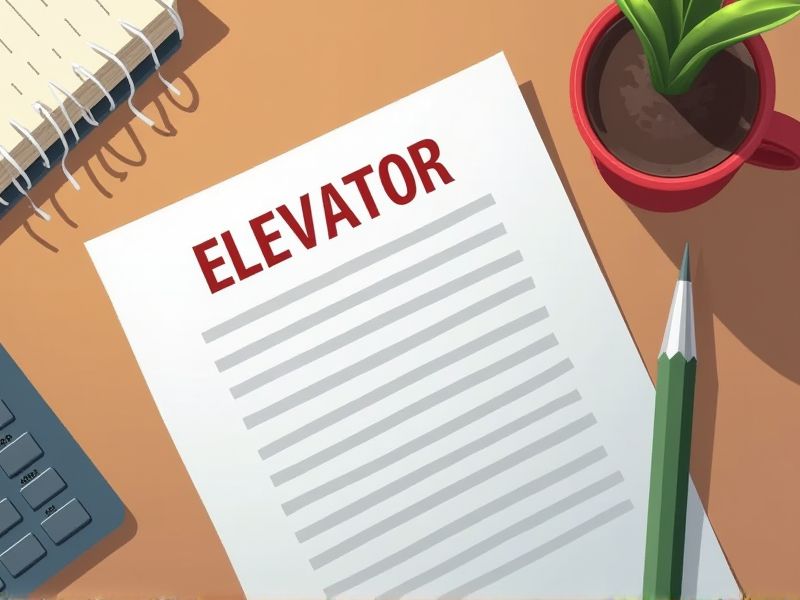
Elevator installers and repairers work with complex mechanical and electrical systems, making technical proficiency critically important for safety and efficiency. To ensure adherence to industry standards and maintain public safety, certifications validate a professional's practical skills and theoretical knowledge. Regulatory bodies often mandate these certifications to minimize risks and prevent system failures. Some crucial certifications for elevator installers and repairers include those related to safety protocols, technical skills, and manufacturer-specific training.
State Elevator Installer License
State Elevator Installer Licenses ensure that mechanics have the necessary skills and knowledge to install and repair elevators safely. This requirement promotes public safety by reducing the risk of accidents stemming from improper installation or maintenance. Licensing sets a standardized level of competency and professionalism within the industry. Regulators use these licenses to hold professionals accountable, ensuring compliance with state codes and industry regulations.
State Elevator Repairer License
Obtaining a State Elevator Repairer License ensures that an individual has met specific safety standards and qualifications, minimizing accident risks in elevator installation and maintenance. Licensed professionals are accountable to state regulations, which fosters trust among clients and promotes industry credibility. The license requirement reinforces ongoing education and skill development to keep pace with evolving technologies in elevator systems. This regulatory framework helps maintain public safety and operational efficiency in buildings with elevator installations.
OSHA 10-Hour Construction Safety Certification
The OSHA 10-Hour Construction Safety Certification is crucial for Elevator Installers and Repairers because it enhances their knowledge of construction safety protocols. This training reduces the risk of accidents and injuries, which are higher in the complex environments associated with elevator systems. Certification ensures compliance with federal safety regulations, potentially minimizing legal liabilities for employers. A well-informed team directly influences workplace safety culture, leading to more efficient and safe project outcomes.
OSHA 30-Hour Construction Safety Certification
The OSHA 30-Hour Construction Safety Certification provides elevator installers and repairers with essential knowledge about workplace safety standards to mitigate risks associated with their tasks. Due to the high-risk nature of working with cables, pulleys, and elevators, the certification helps in understanding and preventing potential accidents or injuries. With comprehensive training on recognizing hazards and implementing safety protocols, professionals are better equipped to maintain compliance with federal safety regulations. Employers and clients often require certifications to ensure that their workforce adheres to industry safety practices, promoting a safer working environment.
Certified Elevator Inspector (CEI)
Certified Elevator Inspectors are needed to ensure compliance with safety regulations, minimizing risks for both installers and users. Their expertise in identifying potential hazards helps prevent accidents during installation and operation. Regular inspections by certified inspectors can extend the lifespan of elevators by identifying maintenance needs early. The certification provides a standardized quality check, enhancing trust and reliability in elevator systems.
National Association of Elevator Contractors (NAEC) Certification
The National Association of Elevator Contractors (NAEC) Certification ensures that elevator installers and repairers meet industry standards, which contributes to heightened safety for both workers and passengers. By certifying professionals, the NAEC enhances credibility and trust, reassuring clients of the technicians' skills. Employers and clients are more likely to engage certified individuals, resulting in potentially increased job opportunities and career growth for those with certification. Compliance with industry regulations through such certifications can also protect companies from legal and safety repercussions.
National Elevator Industry Educational Program (NEIEP) Certification
NEIEP certification establishes a standardized level of expertise for elevator installers and repairers, ensuring safety and compliance with industry regulations. It provides comprehensive training in the technical and practical aspects of the job, leading to improved work quality and efficiency. Certified professionals are often more competitive in the job market, as employers recognize the credential as a mark of skill and reliability. The certification also helps reduce the likelihood of work-related accidents, due to the rigorous safety training included in the curriculum.
Electrical Journeyman License
Obtaining an Electrical Journeyman License for an elevator installer and repairer ensures adherence to safety standards, reducing the risk of electrical accidents. Skilled handling of the complex wiring and control systems in elevators demands thorough electrical knowledge, which the license signifies. Employers and clients are more likely to trust licensed individuals, increasing job opportunities and credibility in the industry. Licensing often aligns with regulatory requirements, ensuring compliance with local and national codes while avoiding potential legal issues.
EPA Refrigerant Handling Certification
Elevator installers and repairers frequently work with systems that rely on refrigerants for cooling mechanisms. Handling these substances without proper certification can lead to environmental harm and violate regulations. The EPA Refrigerant Handling Certification ensures professionals possess the knowledge to manage these materials safely and responsibly. Compliance with this certification helps prevent ozone depletion and aligns work practices with federal standards.
First Aid/CPR Certification
Elevator installers and repairers often work in high-risk environments where accidents can occur, making First Aid/CPR certification essential to manage injuries effectively. Certification ensures that these professionals can respond promptly to emergencies, potentially saving lives during unexpected incidents. Handling heavy machinery can lead to situations where immediate medical assistance is necessary, highlighting the importance of having certified personnel on-site. Proper training in CPR and first aid also enhances workplace safety culture, reducing the likelihood of severe outcomes from common installation and repair hazards.
Summary
When you obtain certifications as an Elevator Installer and Repairer, your job prospects significantly increase due to enhanced credibility. Employers often prefer certified professionals, which can lead to higher salary expectations and job security. With certification, you stay updated with industry standards and technologies, improving your skillset. As a result, your career advancement opportunities expand, positioning you for leadership roles or specialized tasks.
